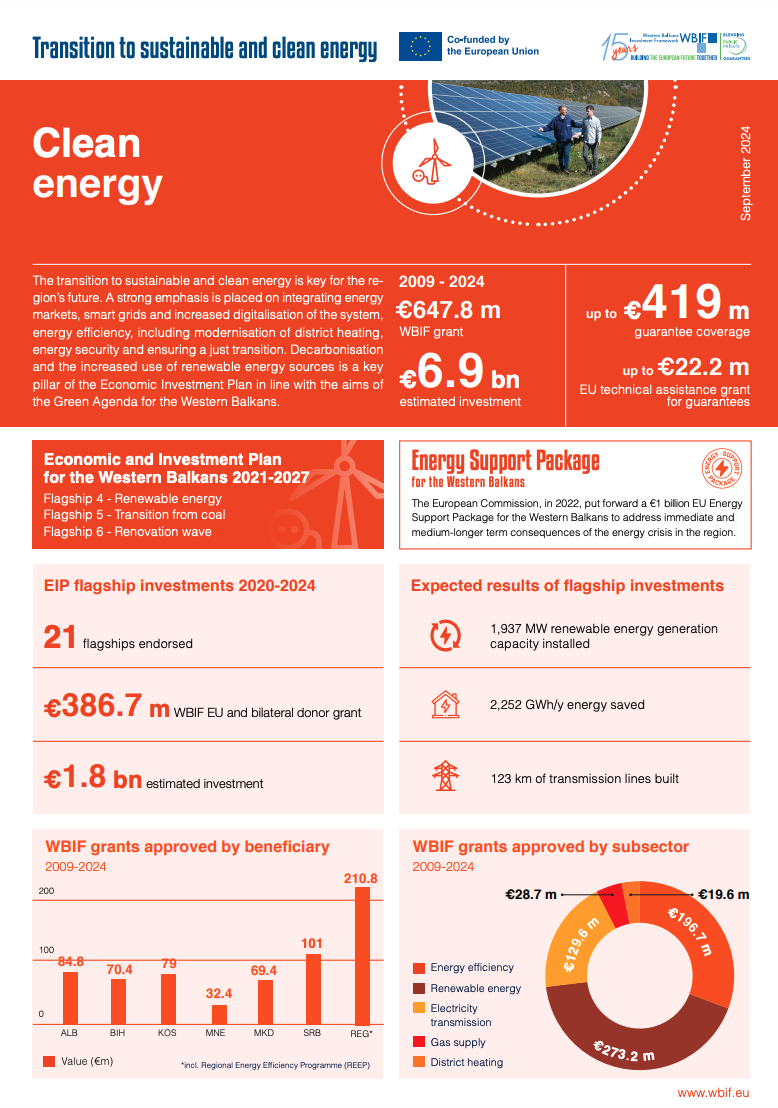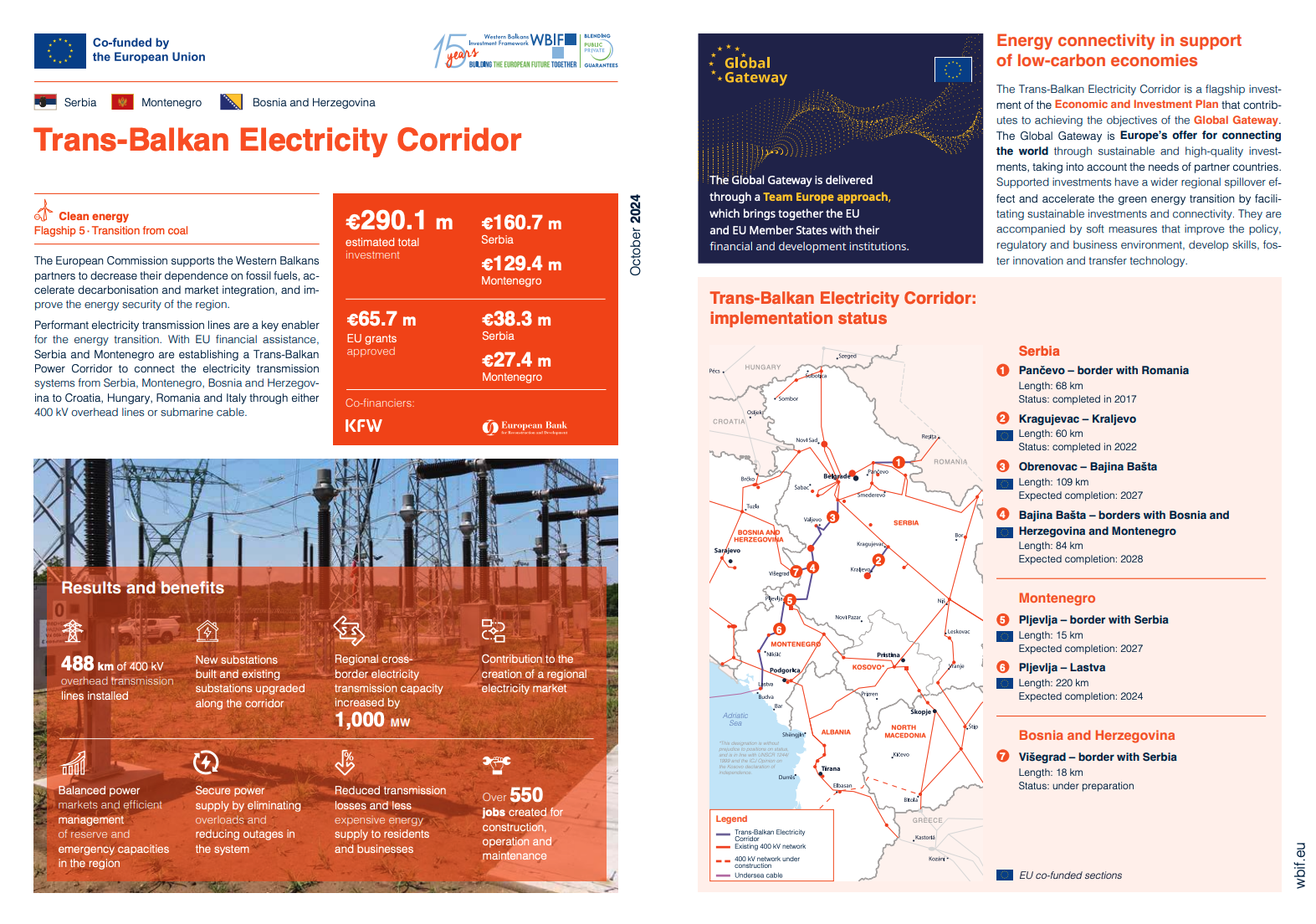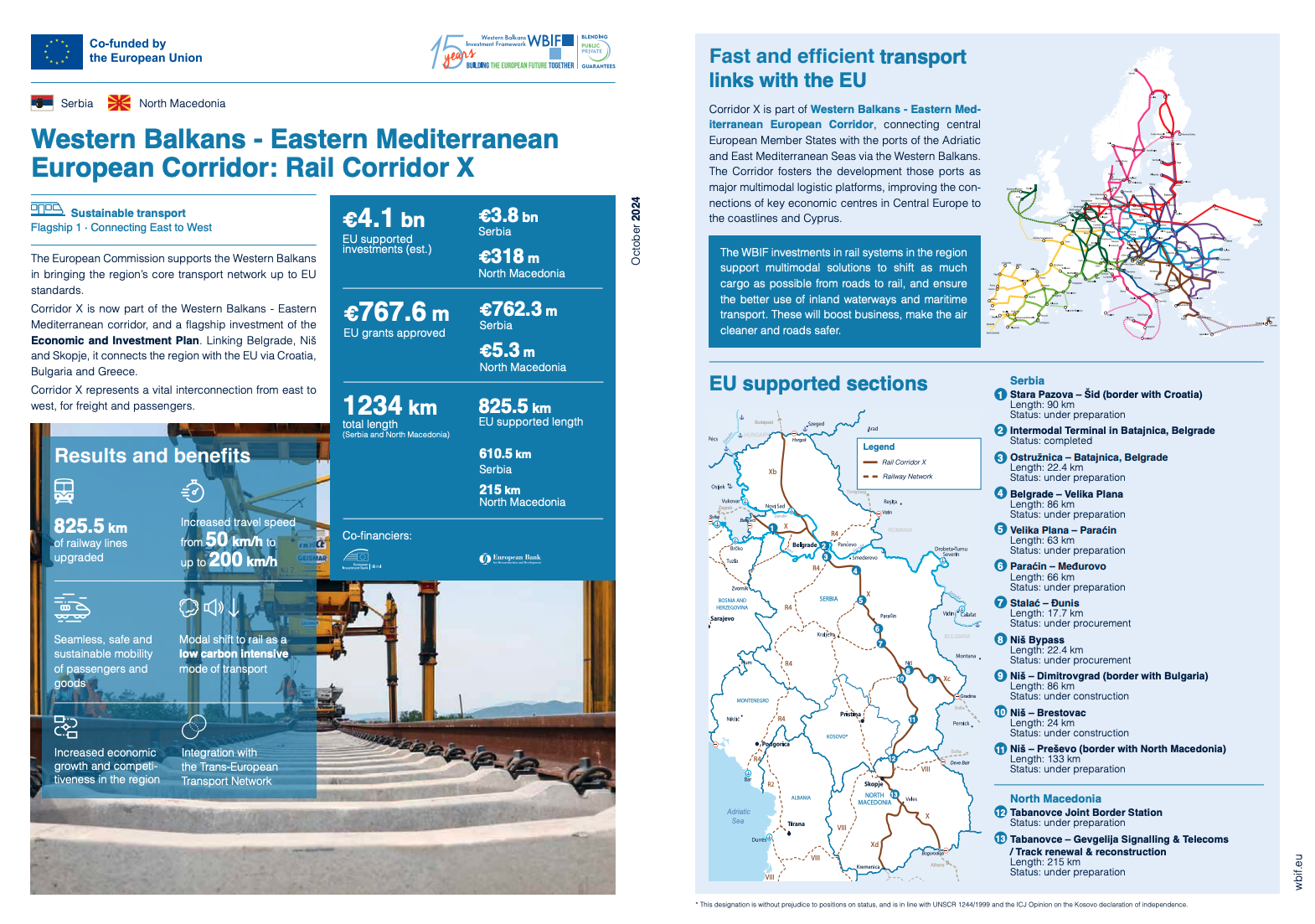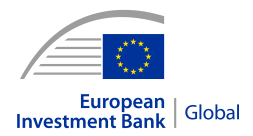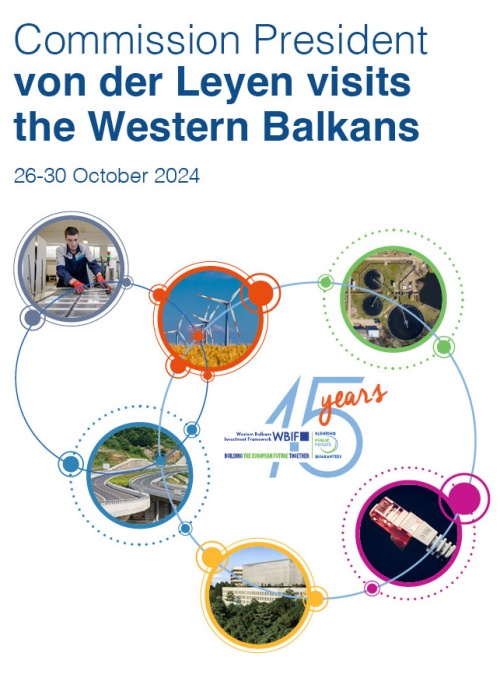
European Commission President von der Leyen visits the Western Balkans
The President of the European Commission, Ursula von der Leyen, undertook a four-day trip to the Western Balkans 23-26 October 2024, where she met with the leaders of Albania, North Macedonia, Bosnia and Herzegovina, Serbia, Kosovo*, and Montenegro. It was the occasion to discuss the Western Balkan partners' progress on the EU path, the impact of the Economic and Investment Plan as well the EU's new Growth Plan.
President von der Leyen noted that the Growth Plan for the Western Balkans is a “roadmap” for greater economic integration between the Western Balkans and EU and “will give [Western Balkan] companies the access and the means to compete on [the EU] Single Market.”
She celebrated the Commission approval of the Reform Agendas of Albania, Kosovo, Montenegro, North Macedonia and Serbia, which will bring measures and investments allowing the Western Balkan partners to “make a big leap forward towards the European Union”.
Thanks to these ongoing investments, and the newly-approved Reform Agendas, the Western Balkans are advancing on the road to the European Union.
During her visit, President von der Leyen highlighted the significant progress made on delivering the EU’s Economic and Investment Plan (2021-27) for the region, which is implemented through the Western Balkans Investment Framework. In particular, she highlighted key flagships for clean energy, underlining the EU’s support of the green transition of the Western Balkans.
President von der Leyen characterised Albania as a trailblazer, pointing to plans to install a floating solar power plant in Vau i Dejës as an example of the pioneering progress in the region. Together with the European Union, Albania is investing in clean transport for better connectivity. Examples include new railway connections and plans for Tirana's first electric bus system.
In North Macedonia, the President emphasised the work done to increase renewables capacity, which currently accounts for one quarter of power generation. She shone a light on the construction of the Oslomej and Bitola solar power plants and upgrading of the Bogdanci Wind Park, carried out with EU assistance.
While in Serbia, von der Leyen flagged the wind farm in Kostolac as a significant project which could produce the equivalent of the energy demand of 45,000 homes. The Vlasina hydropower system is also getting a complete overhaul to ensure safe and reliable production over the next 30 years. She also met with HTEC, a digital consulting and software engineering firm, who benefitted from financial backing through the Enterprise Expansion Fund (ENEF II), fuelling their international growth and strategic acquisitions.
The President noted that Bosnia and Herzegovina produces more than 30% of its power from hydro and wind. Investing in projects such as the wind farms on Vlašić mountain and in West Herzegovina Canton will boost the renewable energy capacity. Together, they have the capacity to provide energy to nearly 100,000 homes.
Montenegro is transforming into a key energy hub. The president highlighted in particular the investments in the next generation, with the energy-efficient renovations of schools and kindergartens.
WBIF investments in Clean Energy:
President von der Leyen also noted the important efforts being made to establish the Trans-Balkan Power Corridor. This will connect the electricity systems of Serbia, Montenegro, and Bosnia and Herzegovina with the European Union Member States.
Trans-Balkan Electricity Corridor:
In each of her visits, President von der Leyen emphasised the investments in clean transport for better connectivity across the region and with other parts of Europe. This includes the very important project of Railway Corridor VIII, connecting North Macedonia with Albania to the west and with Bulgaria to the east. It also includes Corridor X, linking Belgrade, Niš and Skopje.
Railway Corridor VIII:
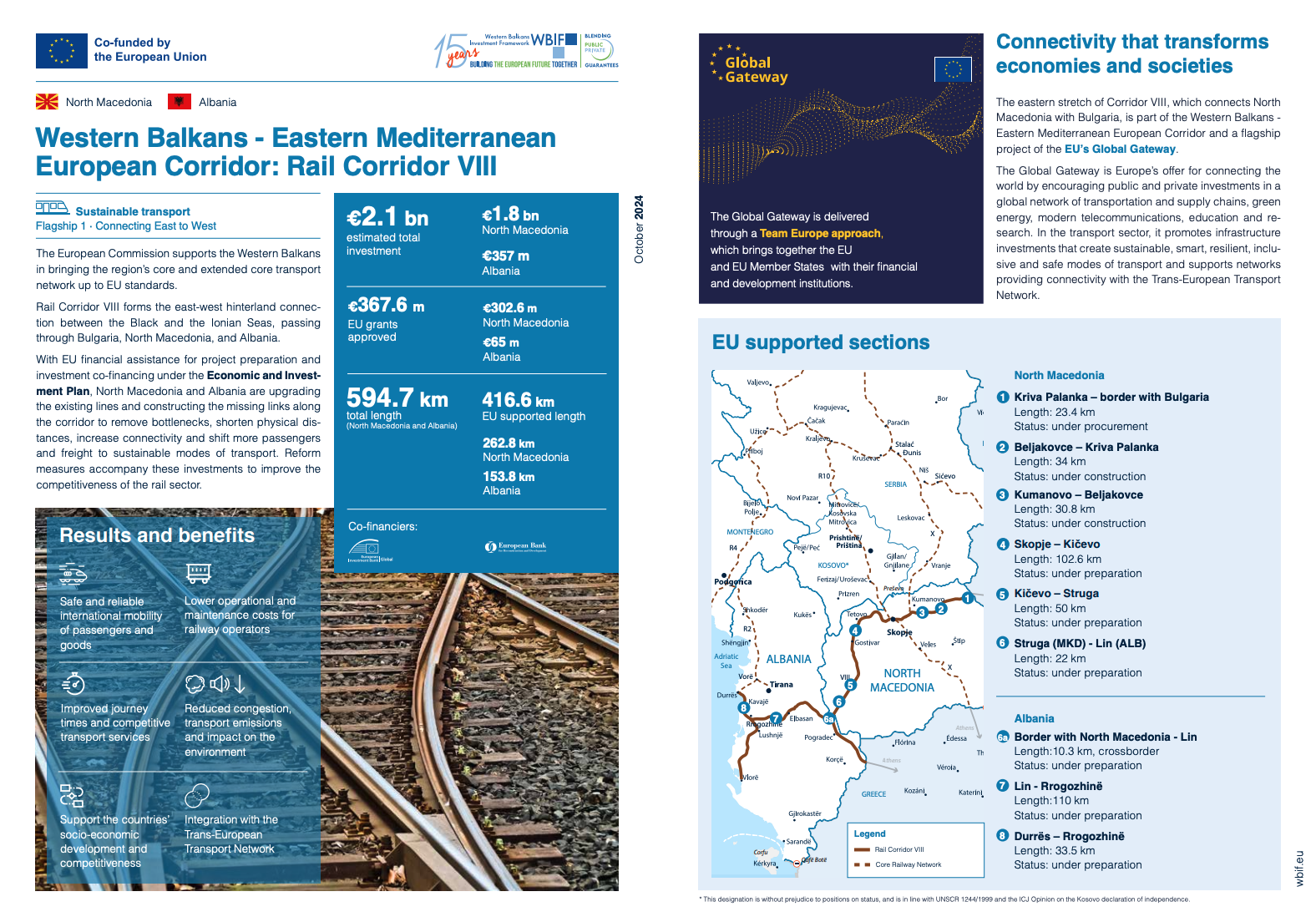
Corridor X:
* This designation is without prejudice to positions on status, and is in line with UNSCR 1244/1999 and the ICJ Opinion on the Kosovo declaration of independence.
